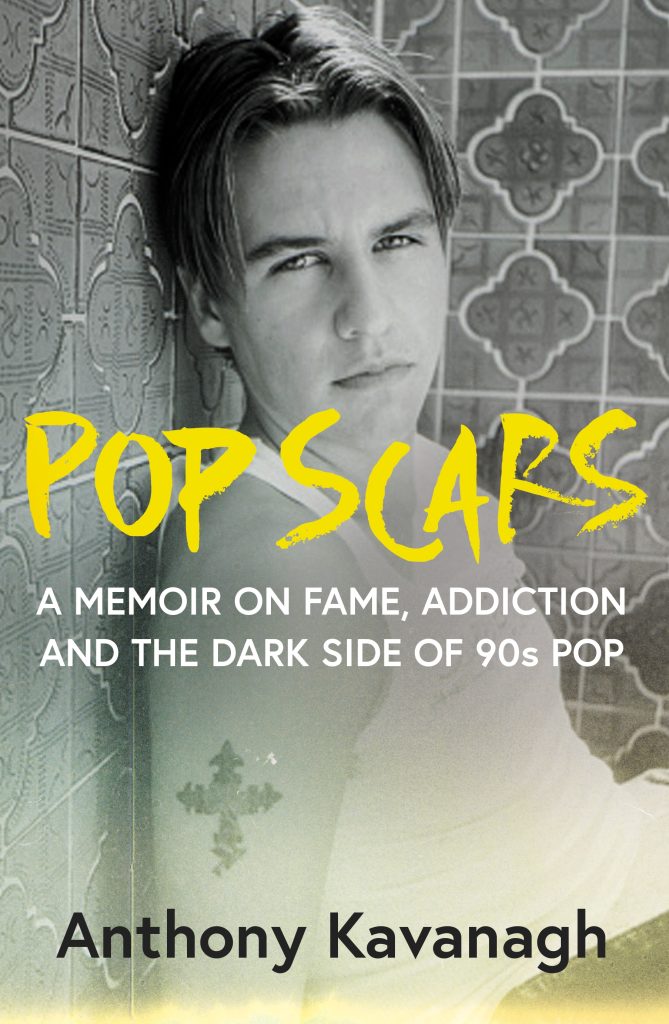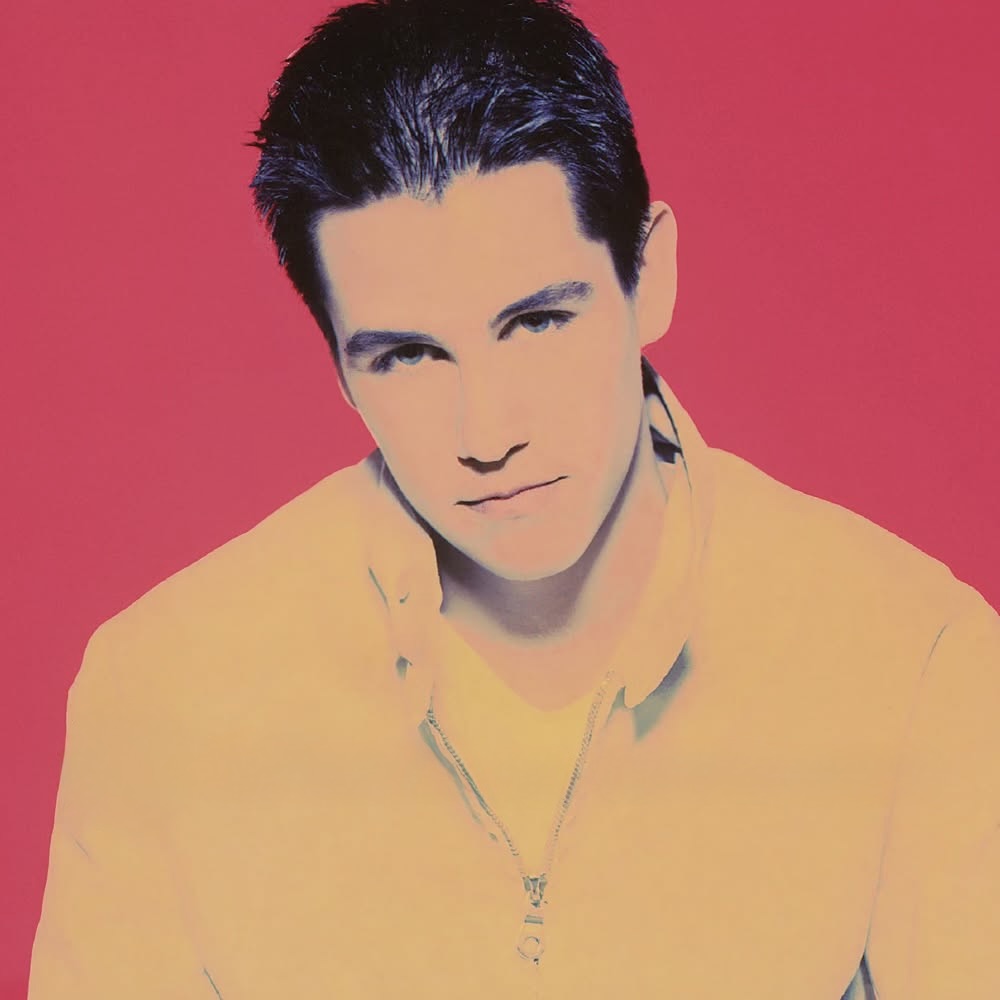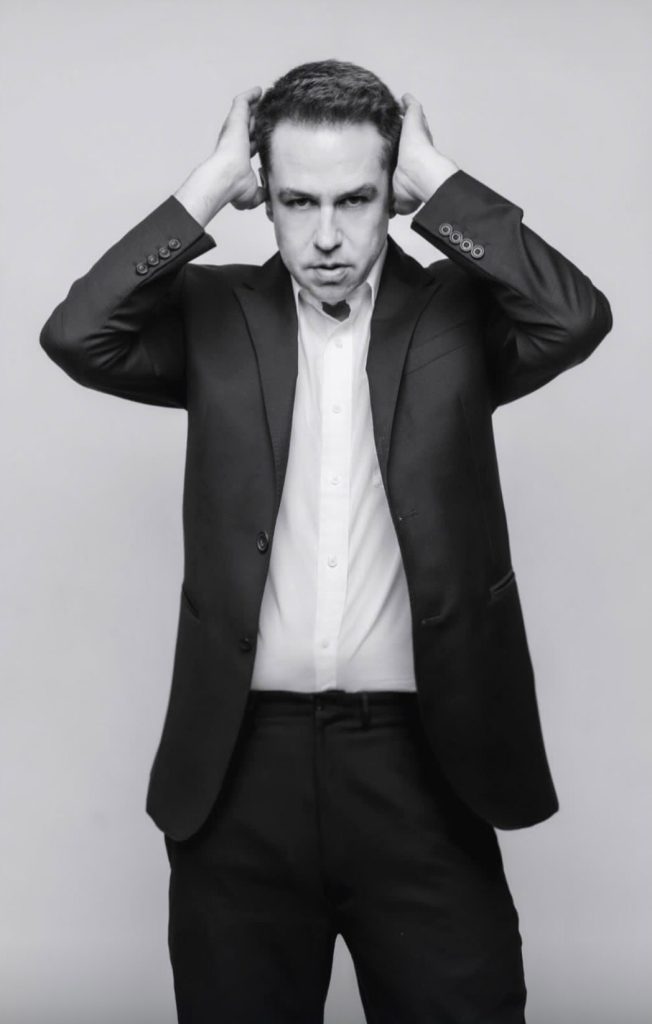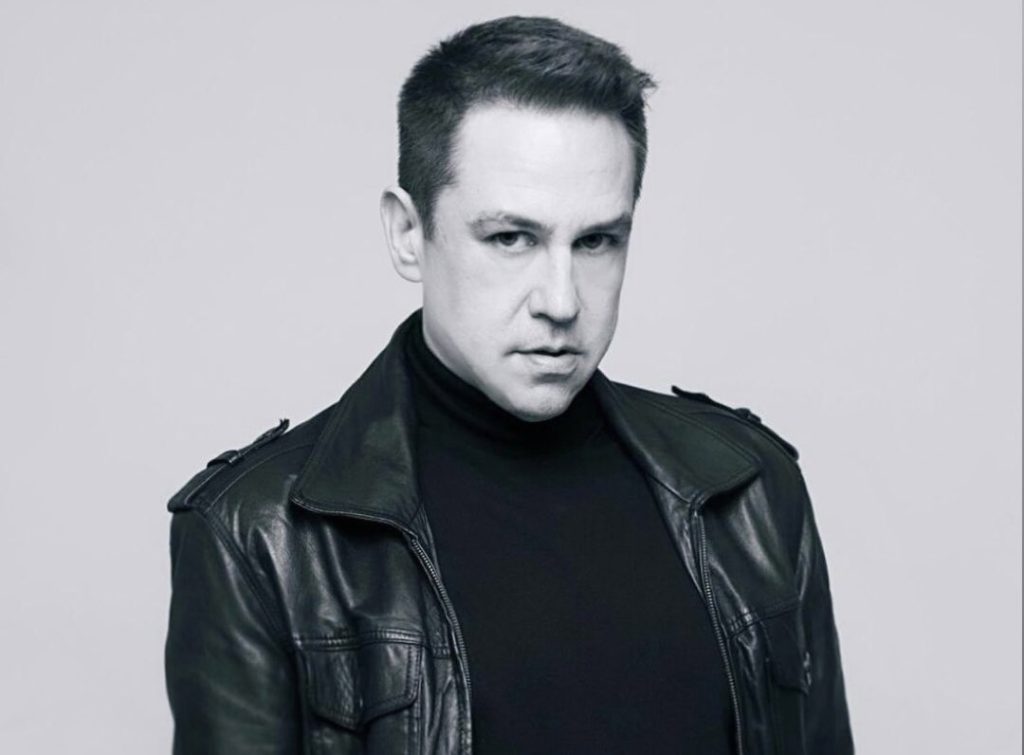
In the mid to late ‘90s, very few British solo recording artists experienced the bright lights and dizzying highs of planet pop quite like Anthony Kavanagh — better known simply as Kavana. With a string of chart hits, tours alongside global icons, and a loyal fanbase, the Manchester native seemed to have it all. But behind the polished image was a far more complex story — one of personal struggles, resilience, and reinvention.
Now, in his candid new memoir Pop Scars, Kavana lifts the veil on both the music industry and his private life, sharing the hardships that shaped him as profoundly as the triumphs. Honest, raw, and often surprising, the book lays bare both the glitter and the grit of life in the spotlight.

“I really want to make it clear to people that this book isn’t a pity party, or a woe is me tale of how hard my life was when I was a popstar,” a cheery yet candid Kavana tells me just moments after wrapping up an appearance on Irish television. “I personally think the more interesting chapters are the ones that delve into realities of dealing with things like addiction, grief and loss. For me, those seasons of my life tell a far more important story than the anecdotes of me acting out at the BRITs or having some random encounter with a movie star at a showbiz party.”

“But I guess that fascination we all have with fame and celebrity is what garners the most attention right? And I get that, because whenever I’m reading a biography or autobiography, I want to know all of the scandal and gossip too (laughs).”
I’VE GOT SOMETHING TO GIVE…
“I first thought about writing a book years ago, but because of who I was, and how I was functioning at that time, it was never going to happen.” Alluding to his well documented issues with alcohol and addiction, the ‘Funky Love’ singer continues: “Everybody’s relationship with mixing alcohol and creativity is different, but for me, writing and addiction don’t go together! I can promise you, I am in no way some sort of modern day Ernest Hemingway, who can extensively drink a few bottles of wine a night, and then turn out their best work… my initial efforts were a disaster!”
After embracing sobriety in 2022, Kav says that whilst years of songwriting had taught him how to capture emotion in short bursts, crafting a full memoir required more discipline, more structure, and a different kind of creative stamina. To help channel his ideas and stay on track, he enrolled on a writing course, giving himself both the guidance and accountability he needed. The experience not only sharpened his skills, but also gave him the confidence to tackle his story with clarity and purpose, turning scattered memories into a cohesive and compelling narrative.
“Pouring alcohol into my system for all of those years zapped me all of my creativity,” Kavana admits candidly. “And when I felt like I wasn’t able to be creative anymore, the next two things to disappear from my life were my confidence and self-esteem — and trust me, you need those characteristics and personality traits if you want to put yourself out there and do something in the public eye. So enrolling on the writing course felt like the right thing to do because one, it would help me to rebuild my confidence, and two because it meant I was going to be around other writers and creatives.”
“And it was fun, we had a real laugh. There were 12 other women on the course, and me — that whole scenario could have become a book in itself, trust me (laughs). But in all seriousness, it was great. My tutor was amazing, she really helped me to find my voice, and develop my writing style. Before I met her, all I really had were these muddled memories written up into little scenes. Under her guidance I was able to piece everything together, and create more of a vision for how I wanted the book to be.”
“I remember saying to her one day: ‘I’m not famous enough to write a book, nobody will buy it.’ And that’s when she told me that if I wanted this project to be more than just another salacious celebrity memoir, then I had to lean into the kitchen-sink stuff, meaning I should share more of the stories and issues that everyone can relate to. Whether that be talking about the relationship between me and my Mum, me exploring my sexuality, or those real, dark moments of being caught in addiction.”
“That simple piece of advice helped me to see, and believe, that I had a worthwhile story to tell.”
With a wealth of songwriting experience under his belt, Kavana was no stranger to shaping words into more powerful and emotionally resonant prose. But stepping into the world of book writing was a completely different art — one that demanded patience, organisation, and a far deeper level of storytelling than a three-minute pop song could ever allow. Instead of chasing hooks and melodies, he found himself piecing together long-form narratives, revisiting memories, and sitting with emotions in a way that was both challenging and cathartic. The process wasn’t always easy, but it gave him a new creative outlet — one that allowed him to reflect, heal, and share his story with an honesty that music alone could never fully capture.
“When you’re writing a book, there’s obviously no music, no melody, and no instrumentation involved, so you’re relying purely on the power of words to convey feelings and emotions to the reader,” a thoughtful Kavana explains. “That means you have to think more carefully about the type of language you use, and how something reads aloud, rather than just going with whatever rhymes or synchs to the beat of a backing track.”
“When you’re writing a song, you’re writing to more of a formula, so there are set parameters you have to work to. But with a book, there are no rules really — you just get into a zone, and write until you run out of steam, or the subject matter becomes too painful.”
Of the pangs of sadness he felt looking back on certain eras of his life thus far, Kav adds: “Of course there are things I wish I hadn’t done, and situations that I regret. Certain relationships ended sooner than I hoped, and some career stuff didn’t work out, so yeah, reliving those moments whilst writing the book was tough, but honestly, fretting over the past, and worrying about the future are two things I’ve done throughout my entire life, so in a way it was no different to how I am every other day (laughs).”
“I carried a lot of guilt for a long time, and because of that I’d often downplay a lot of my achievements, I’ll hold my hands up and say, that is something I’m definitely guilty of doing. But on the flip side of all the sadness, it was also nice to reflect and look back on my popstar days — it reminded me that my story isn’t all doom and gloom.”

SOMEBODY SAID THAT I WOULD BE THE KID TO GO ALL THE WAY
Putting all of those misplaced decisions, perceived failures, and disappointments to one side, it’s important to remember Kavana not just for the personal struggles, and battles with addiction that marked certain periods of his life, but for the genuine talent and success that first propelled him into the spotlight. In the 1990s, he rose to fame with his distinctive voice, magnetic charisma, and chart-topping hits that resonated with a wide audience, earning him a place in pop history. His artistry and ability to connect with listeners are legacies that deserve recognition beyond the difficulties he later faced.
“I loved being a popstar,” Kav says without missing a beat. “I came on the scene right when pop music was on the cusp of becoming huge again. You’d got Take That, the Spice Girls, Boyzone, and the Backstreet Boys, all of these incredible acts dominating the charts, and taking over the world! It was an incredible time in British music, and I guess, in my own little way, I was a part of it, and that feels good… pardon the pun.”
“I was at the BRITs in ’97 when Geri Halliwell wore that Union Jack dress! I toured with Boyzone, I dressed up as Clark Kent / Superman and performed at The Smash Hits Poll Winners Party, I won a Smash Hits Award, I travelled the world, I met my idols — the list goes on! It was all a bit of a whirlwind, but a really fun one.”
Pausing for a moment to reflect, Kavana concedes: “Do know what the problem with me is? I’m a realist. So I always want to be honest and upfront about things. So listen, yeah, of course of the popstar years were fun, but so much of the music industry is based on bravado and image, and a lot of what you see isn’t real. What helped me to realised that? When I saw that my Smash Hits Award was made out of tin rather than gold… gutted (laughs).”
Kavana Live at The Smash Hits Poll Winners Party 1997
As a society, we’re often led to believe that money and fame are the ultimate cures for disappointment, pain, or insecurity — that success in the spotlight will somehow erase the struggles of everyday life. But the truth is, wealth and recognition don’t always guarantee happiness or fulfilment. More often than not, they can magnify existing challenges, leaving people to confront the same doubts and difficulties, just under a brighter, harsher light.
“I thought once I’d gotten myself a manager, a record deal and some good songs recorded, success would follow almost instantly, and then I’d be happiest person on the planet,” Kavana muses. “But I wasn’t. You may well get swept up in all of the chaos and the relentless workload, but the issues and problems you have don’t just go away because a couple of strangers on the street know your name.”
“The late 90s were complex for me, there was a lot going on in my head. I was struggling with my sexuality, and I was lonely… but how could I feel anything other than utter joy because my dreams were coming true? Feeling anything else would have just made me an ungrateful brat right? So I told myself I had to put my head down, get on with things and suppress my emotions and anxieties as best I could.”
As he himself admits, music was Kavana’s saviour and lifeline — a sanctuary away from the chaos of fame and the internal struggles he was fighting to overcome. In the noise of public attention and the weight of personal battles, it offered him clarity, escape, and a sense of grounding.
“Music was my thing growing up, it provided me with an escape and it opened my eyes to a whole other world — one I wanted to be a part of, one I needed to be a part of it. I still can’t quite believe I found a way to make that happen…”
“I was willing to walk through a brick wall to make my dream become my reality.”
YOU GOTTA REACH OUT FOR THE HIGHEST STAR
Despite having no industry connections or insider advantage, Kavana managed to carve out a place for himself in the cutthroat world of pop purely through determination, raw talent, and an unshakable belief in his dreams. Long before “manifesting” became a buzzword, he was already living it — visualising success, putting himself in the right places, and holding onto the certainty that he was destined to be on stage. His rise was less about privilege or luck, and more about sheer willpower, proving that sometimes the most powerful tool an artist can have, is the conviction that their vision will become reality.
“I cringe even saying it, but maybe I was ‘manifesting’ before any of us really knew that manifesting was a thing,” Kav laughs rolling his eyes. “As far back as I can remember, I walked around telling everyone I was going to be a popstar! Maybe I was delusional and overly cocky, but I was adamant that I was going to be managed by this one particular guy, and that one day I would be on Top of The Pops, and the cover of Smash Hits, and… I don’t know how, but all of those things happened. There were some sliding doors moments of course, and I definitely worked hard and hustled my way into a lot of rooms, but like I wrote in the book, despite the odds stacked against me, I believed in myself, and I was willing to walk through a brick wall to make my dream my reality.”
“As we’ve already discussed, I had a brilliant time — the 90s were a lot of fun — but I soon learned that ‘popstar fame’ can sometimes be fleeting, and there’s no denying that after ‘Will You Wait For Me?’ got to number 29 in the charts in 1999, interest in me and my music started to dwindle — the phone wasn’t ringing as much, my schedule was beginning to slow down, none of the big TV shows or magazines seemed to want me anymore, and everyone around me felt to be pulling away. Eventually I got dropped by my record label, and… that was it.”
“You have to remember, all I’d ever wanted to be was a popstar! I didn’t have a plan B, or anything to fall back on. So when I’ve got people telling me my dream was over, I was crushed. I know there are far, far worse things that can happen to a person, but I’ll be honest, at that time it felt like my life was over.”
I GOT A ONE WAY TICKET OUT OF INNOCENCE
After parting ways with Virgin Records at the dawn of the new millennium, Kavana could have easily followed the familiar route taken by many of his peers — popping up for the odd public appearance, trying his luck at presenting, or venturing into musical theatre, before eventually fading into the vast pop abyss. But following the crowd was never Kav’s style. Instead, he doubled down, packed his bags, and set his sights on Los Angeles with nothing but grit, talent, and the audacity to chase bigger dreams. On reflection he now says the move was less about escaping his past, and more about reclaiming his narrative rather than letting the industry dictate his fate. And so, at just 22, he charged towards his future with the same spark that first made him a star.
“I wasn’t prepared to let ‘failed popstar’ be my fate, I just wasn’t having it,” a defiant Kavana explains of his decision to up sticks and leave the UK. “I had aspirations and other dreams I wanted to fulfil. Ok, things hadn’t worked out for me in Europe with the second album, but I was enjoying incredible success in Asia, particularly with songs I’d written with American songwriters and producers, so that gave me the confidence to explore the possibility of working with other musicians and creatives in the States.”
By his own admission, relocating to LA also gave him the opportunity to experience a completely different way of life, one far removed from the UK pop scene. And so, away from the pressures of the music industry, he was able to breathe, reset, and begin to truly find himself, surrounded by new cultures and creative energy, affording him the freedom to grow both personally and artistically.
“I found peace in LA, and I enjoyed having more control over my life,” Kav smiles. “I moved into an incredible apartment, I began dating for the first time and then found myself in a proper, loving relationship — it was like I was living out my college or university years but in my 20’s, and it was wonderful.”
“There was so much hope and optimism in those early days, I felt like I’d been given a second chance. In fact I remember being on Sunset Boulevard one day, the sun was shining, and I just looked up at the sky and said: ‘thank you God for my life’.”
With the beauty of hindsight, we wonder how does Kav look back on that period of his life now? “I call those my ‘halcyon days’ (laughs). I did some great work out in America, and I was given some fantastic opportunities. It was a good time in my life, I mean towards the end things were a bit bleak, mainly because I was beginning to run out of money and behaving in ways I shouldn’t… so when my visa was up for renewal I decided enough was enough, and it was time to come back home.”
THIS WAS MY DREAM
 Image Credit: Paul Madeley
Image Credit: Paul Madeley
With the release of Pop Scars, Anthony Kavana successfully manages to free himself from the shackles of his past.
Through candid stories, raw memories, and insightful reflections, he delivers a profoundly honest memoir that refuses shy away from pain, yet also celebrates the joy, humour, and resilience that have defined his story. It’s a powerful reminder that the boy who once seemed untouchable was, in fact, achingly human.
“I don’t want to sound corny, or for people to think I’m just reeling off a bunch of clichés for the sake of selling a book, but I really have learnt a lot about myself throughout this whole process,” Kav says with a half smile, half grimace. “I’m way more resilient than I thought, and I’ve discovered the importance of having compassion, not just for others, but for myself too.”
Shifting the focus away from himself, he adds: “But maybe none of this is actually about me. Maybe this is more about people realising that life is all about finding silver linings, and believing that change is possible, no matter how bad things get — you just have to have hope.”
Pop Scars: A memoir on fame, addiction and the dark side of 90s pop by Anthony Kavanagh, is out now, £22 (Blink Publishing), also available in eBook and Audio (read by the author).


